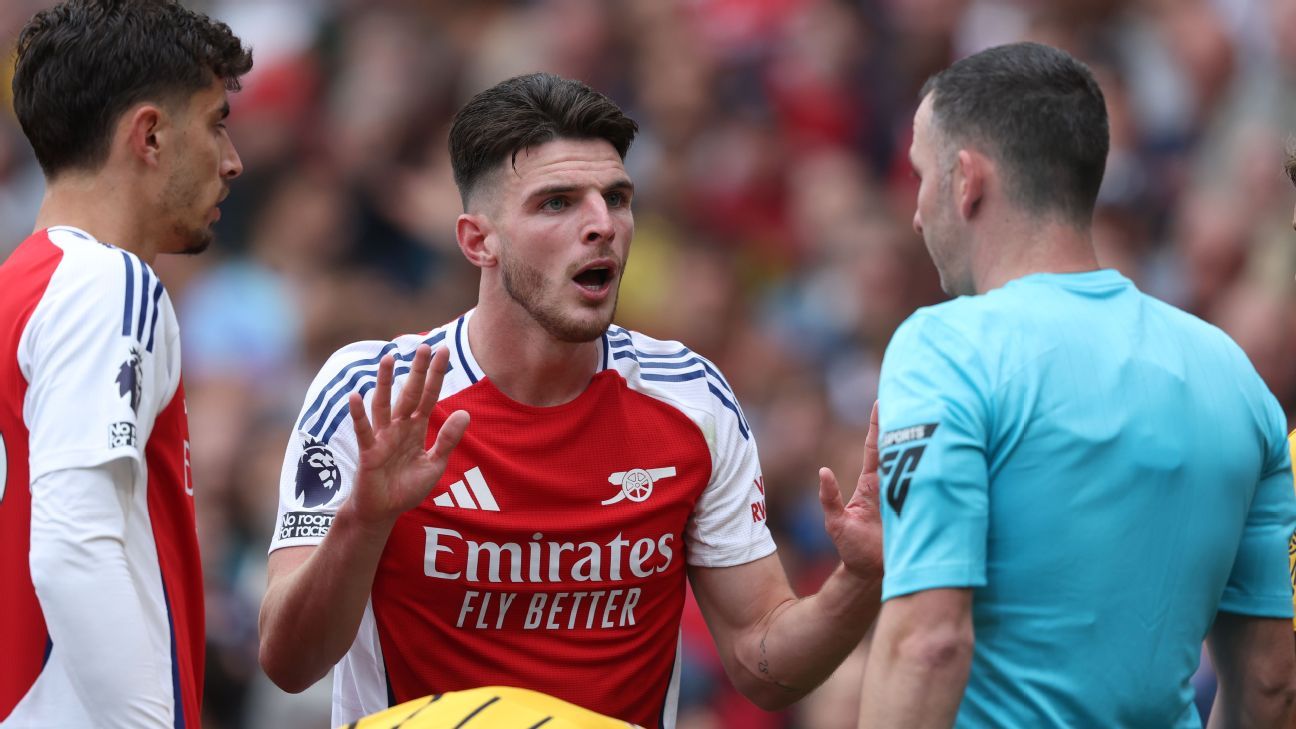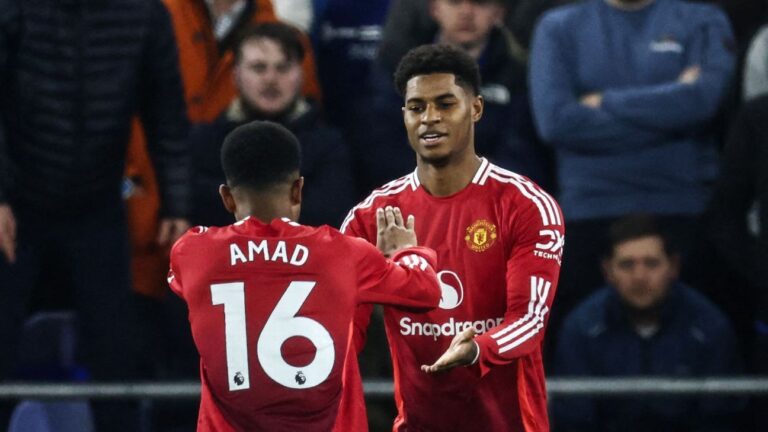The Premier League‘s Independent Key Match Incidents (KMI) Panel has unanimously supported referee Chris Kavanagh’s decision to send off Declan Rice in Arsenal‘s 1-1 draw with Brighton & Hove Albion on Aug. 31.
Rice was already on a caution when he got into an altercation with Joël Veltman and gave away a free kick. As Veltman stepped forward to kick the ball, Rice knocked it off the pitch with his foot, and Kavanagh showed the Arsenal midfielder a second yellow card for delaying the restart of play.
Editor’s Picks
2 Related
The findings, seen by ESPN, state that “Rice knows what he’s doing, it’s a gentle touch but once the referee sees it, he has no choice.”
The KMI panel has five members, made up of three former players and/or coaches, plus one representative each from the Premier League and PGMOL. It was set up at the start of the 2022-23 season to give an independent assessment of decision-making rather than relying on the views of PGMOL or the clubs themselves. The judgement is intended to provide an arm’s-length assessment of all major match incidents but gives weight to the decision of the referee in subjective situations, taking into account the laws of the game and the Premier League’s interpretation.
There was “unanimous agreement” among the five on the KMI panel “that the actions of Rice were clear, deliberate and impactful. Therefore, the referee was correct to send Rice off for a second caution for delaying the restart.”
The panel also supported the decision of referee Jarred Gillett not to show a second yellow card to Crystal Palace midfielder Will Hughes at Chelsea on Sept. 1. Hughes had pulled back Cole Palmer on the edge of the box, but on a split 3-2 vote the panel said “it is a holding offence but it doesn’t feel like it’s stopping a promising attack due to the Palace defender positioned immediately in front of Palmer.”
Declan Rice was controversially shown a red card during the second half of Arsenal’s draw with Brighton. Neal Simpson/Sportsphoto/Allstar via Getty Images
So far this season there has been little real controversy in the Premier League, with only one VAR decision ruled to be incorrect — when Tim Robinson intervened to disallow Dango Ouattara‘s injury time “winner” for handball in AFC Bournemouth‘s game against Newcastle United on Aug. 25.
While there have been no other VAR errors, the panel has ruled there were two penalties situations which were wrong on the pitch but didn’t meet the threshold for a clear and obvious error for an intervention: Referee Tony Harrington should not have given West Ham United a spot kick against Aston Villa, while Ipswich Town should have been awarded a penalty at Manchester City.
Across 84 key match incidents looked at by the VAR across the first three matchdays, only nine votes out of a possible 420 have said the video assistant made a mistake — and five of those came in the unanimous judgement that Bournemouth’s goal should have stood.







